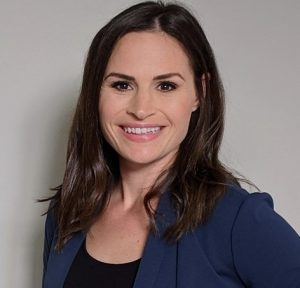To the outside world, accountants often seem the same. The popular culture pictures a generic bean counter, no matter the scenario. But, as an accounting insider, you know this isn’t true. Accounting represents a diverse career choice, with many branching options for professional development. Which ones should you take?
That’s what we’re here to figure out. Adding certifications can broaden your skillset and fill out your resume. Ultimately, having the right qualifications can increase your earning power and accelerate your career. The wrong ones can waste your time and take you off your preferred track.
How can you tell the difference? To help answer that, here are five accounting and finance certifications to help boost your career:
Certified Public Accountant (CPA)
As you start to climb the ladder in the accounting world, a CPA will likely represent one of the first rungs you ascend. Many jobs require this common certification, meaning that you can consider it an excellent development step early in your career.
Achieving a CPA can pay handsomely. Figures show that the median salary advances by 40% with the addition of a certification, compared to an accountant who just has a basic degree.
So what does it take to obtain a CPA? First, you need the fundamental educational background, consisting of at least 150 hours of college credits. You also need to be a professional accountant with at least a year of experience. Then, you can take the exam offered by the Institute of Certified Public Accountants.
Certified Financial Planner (CFP)
Ready to expand your abilities to the areas of retirement planning and wealth management? This certification can act as a key to that career ambition. You’ll master topics like estates and tax-efficient investment planning.
The certification is offered by the Certified Financial Planner Board of Standards, Inc. To take the CFP exam, you’ll need at least a Bachelor’s degree, as well as the additional financial planning courses offered by the CFP Board Registered program. From there, it’s just a matter of passing the certification test.
Certified Management Accountant (CMA)
As you might guess from the name, this resume-builder focuses on management. Awarded by the Institute of Management Accountants, you’ll gain competency in areas like financial planning and strategic planning.
Earning a CMA can dramatically boost your earnings power. One data set compiled by the IMA suggested a compensation boost of more than 50% from earning the certification. To get it, you’ll need a Bachelor’s degree, an IMA membership, and at least two years of continuous professional experience. Then, you just need to pass the CMA exam.
Certified information systems auditor (CISA)
The skills here relate to monitoring a company’s information technology and business systems. Once an accountant scores this designation, they open up additional opportunities to audit, monitor, and assess these areas.
Adding a CISA can lead to increased compensation. According to the Information Systems Audit and Control Association, the organization that oversees the certification, CISA holders demand an average salary of more than $110,000. To achieve this milestone, you’ll need the relevant work experience, and you’ll have to pass an exam.
Certified Internal Auditor (CIA)
Granted by the Institute of Internal Auditors, this certification is a must-have for anyone looking to move into the field of internal auditing. Having a CIA opens doors to higher-level auditing assignments. Some figures point to nearly $40,000 in additional annual income from reaching this achievement.
To earn the certification, you’ll first need an undergraduate degree and have two years of experience in internal auditing. From there, you need to pass the CIA exam.
Adding any of these certifications will push your accounting career forward. You can also spur your development by finding the right assignments. A high-level staffing agency, like Recruiting In Motion, can make that possible.






































































































